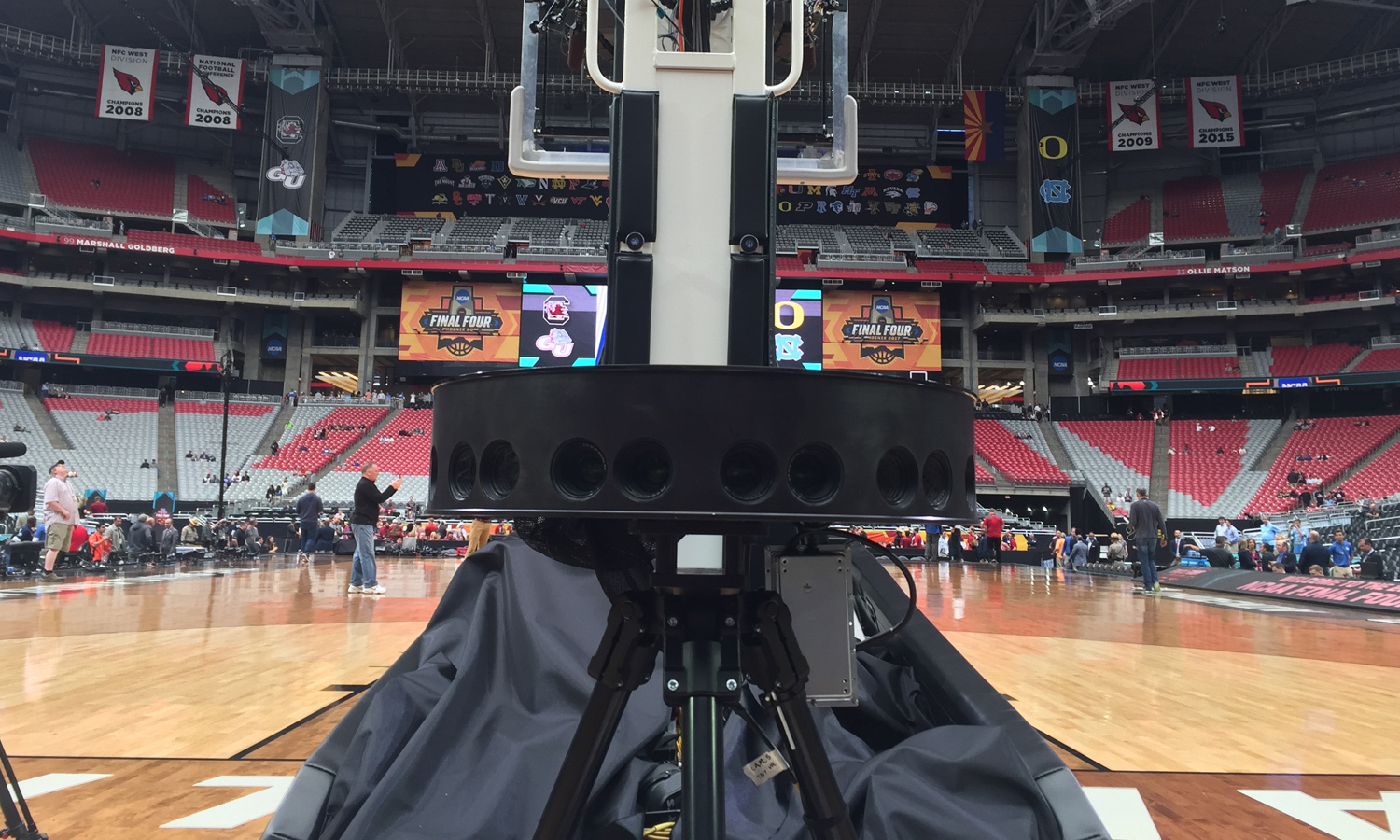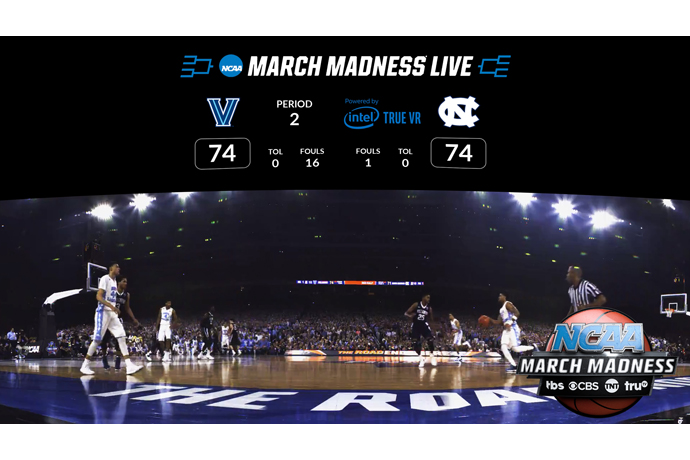Live From Final Four: Intel Sports Group Powers NCAA Championship’s First Live VR Experience
Seven camera pods enable fans to watch a produced feed or pick their viewing angle
Story Highlights
Among the technical highlights here at the NCAA Men’s Basketball Championship in Glendale, AZ, is the first-ever live virtual-reality production of the Final Four. Turner Sports, CBS Sports, and the NCAA have teamed with the Intel Sports Group to offer Intel True VR as part of a new NCAA March Madness Live VR app available in the Oculus Store.

An Intel True VR “pod” features 12 cameras to acquire six stereoscopic images that are then stitched together to create a single 180-degree view of the action.
Intel, which acquired VOKE VR last November and rebranded the offering as Intel True VR, has deployed seven “pods” throughout the bowl inside University of Phoenix Stadium, providing various views of game action, in addition to offering peeks at unique elements of the event, including the student sections.
An Intel True VR pod comprises 12 cameras to acquire six stereoscopic images, which are stitched together to create a single 180-degree view of the action.
“What’s nice is that there is no distortion all the way from left to right,” says Intel Sports Group’s Shaun Carrigan, who is serving as executive producer on the project. “As you look at the cameras up close, you’ll notice that they have natural eye separation with the lenses near each other. That’s to replicate your actual human vision. The cameras are built to replicate exactly what it’s like to be there in many ways.”
Within the experience, viewers are given the opportunity to watch a produced feed of the VR telecast, featured camera-angle changes, and custom commentators and graphics. They are also given the option to select from the available camera angles and watch only from that angle.
“The thing we need to remind people is, this is not broadcast,” says Carrigan. “The VR experience is a mix of the production as well as the product. There’s the application, and there’s the produced feed that we are giving. Those two things come together for an experience, and that’s what makes this so different.”
VOKE VR was a major player and an innovator in the VR space for many years, but its technology has received a significant boost since the Intel acquisition.
“We have made tremendous progress over the past four months,” says Sankar “Jay” Jayaram, co-founder and former CEO of VOKE VR, who now helps oversee the VR efforts for Intel Sports Group. “We had a very good core technology, but there were so many things that we knew we could do and wanted to do but didn’t have the resources. When you find a home at Intel, where they have really good vision of where sports needs to go with the digitization and the personalization of sports, the doors just open up for us to grow the [VR] experience.”
Intel’s offering at this Final Four is a 180-degree view — not a 360-degree one — by design. Technologically, it’s currently impractical to transmit a 360-degree image of a live VR production, given the tremendous amount of data to be sent to the cloud for distribution. Intel is certainly capable of it but finds that many of the angles offered by the pods are in a position where a 360-degree view isn’t needed.
“We think the 180 experience actually works pretty well,” says Jayaram. “Plus, it allows you to push a higher-quality stream.”
Fans watching at home are presented two viewing options: the Gold ticket and the Silver ticket. With the Gold ticket ($2.99 per game), users will receive all viewing options and dedicated game commentary featuring Spero Dedes with analyst Steve Smith and reporter Lisa Byington, who will call the game from the perspective of fans watching the live coverage in VR. With the Silver ticket, fans can experience VR through a single courtside-camera presentation (180-degree live stream) along with the commentary of the CBS televised broadcast.

